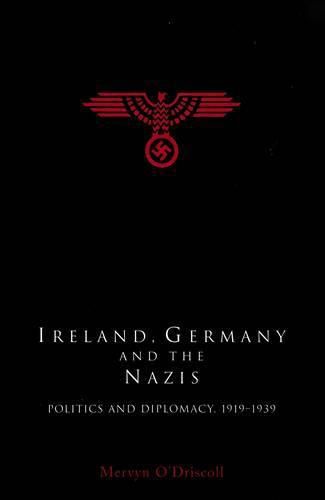Readings Newsletter
Become a Readings Member to make your shopping experience even easier.
Sign in or sign up for free!
You’re not far away from qualifying for FREE standard shipping within Australia
You’ve qualified for FREE standard shipping within Australia
The cart is loading…






Now available in paperback! In the 1920s, Germany and Ireland were new European democracies operating in adverse international, political, and economic conditions. This book places the bilateral Irish-German relationship in the context of the professionalization of the Irish Foreign Service and the Irish Free State’s progressive carving out of an independent foreign policy. It assesses the key Irish personalities involved in Irish-German relations. These include the successive Irish representatives in Berlin, the eminent scholar Dr Daniel A. Binchy, Leo T. McCauley, and the contentious Charles Bewley. Eamon de Valera and Joseph Walshe (Secretary of the Department of Foreign Affairs) also played a crucial role. Irish responses to the Wall Street Crash, the rise of the Nazis, and Hitler’s policies (domestic and foreign), are all analyzed. Did Irish officials foresee the fall of Weimar and the rise of Nazism? How did they view the unfolding nature of the Nazi regime? The clashes between Bewley’s apologetic justifications of Nazism after 1935 and de Valera’s critical attitudes towards domestic Nazi policies are examined. The ineffective efforts to expand Irish-German trade during the Anglo-Irish Economic War shed light on Irish attempts at export market diversification in the emerging protectionist world economic environment. The analysis places Irish-German relations within the maturation of events in Europe in the 1930s, taking account of the League of Nations’ failure, the popularity of Fascism, the Blueshirts, the fraught international atmosphere, and Hitler’s revisionist foreign policy. De Valera’s support of Chamberlain’s ‘appeasement’ of Hitler before March 1939 is located in the framework of de Valera’s attitudes towards collective security, neutrality, and Hibernia Irredenta. [Subject: Irish Studies, 20th Century History, Politics, Nazisim, Ireland & Germany]
$9.00 standard shipping within Australia
FREE standard shipping within Australia for orders over $100.00
Express & International shipping calculated at checkout
Now available in paperback! In the 1920s, Germany and Ireland were new European democracies operating in adverse international, political, and economic conditions. This book places the bilateral Irish-German relationship in the context of the professionalization of the Irish Foreign Service and the Irish Free State’s progressive carving out of an independent foreign policy. It assesses the key Irish personalities involved in Irish-German relations. These include the successive Irish representatives in Berlin, the eminent scholar Dr Daniel A. Binchy, Leo T. McCauley, and the contentious Charles Bewley. Eamon de Valera and Joseph Walshe (Secretary of the Department of Foreign Affairs) also played a crucial role. Irish responses to the Wall Street Crash, the rise of the Nazis, and Hitler’s policies (domestic and foreign), are all analyzed. Did Irish officials foresee the fall of Weimar and the rise of Nazism? How did they view the unfolding nature of the Nazi regime? The clashes between Bewley’s apologetic justifications of Nazism after 1935 and de Valera’s critical attitudes towards domestic Nazi policies are examined. The ineffective efforts to expand Irish-German trade during the Anglo-Irish Economic War shed light on Irish attempts at export market diversification in the emerging protectionist world economic environment. The analysis places Irish-German relations within the maturation of events in Europe in the 1930s, taking account of the League of Nations’ failure, the popularity of Fascism, the Blueshirts, the fraught international atmosphere, and Hitler’s revisionist foreign policy. De Valera’s support of Chamberlain’s ‘appeasement’ of Hitler before March 1939 is located in the framework of de Valera’s attitudes towards collective security, neutrality, and Hibernia Irredenta. [Subject: Irish Studies, 20th Century History, Politics, Nazisim, Ireland & Germany]